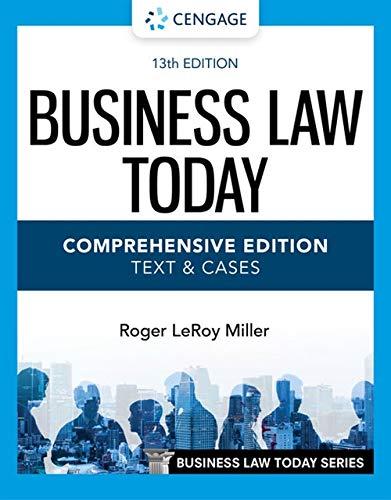Exploring the Variety of Random Documents with Different Content
"Slowly, slowly, my lad! What's all this about?"
For the first time he looked up to see with amazement that he was not in the hands of ill-met friends of the two monks, but held by the very two foreigners who once had applauded his cricket; he was a captive of the Western barbarians whom, in his mock wars, he had been defying—and very happy to be their captive after the real warfare of this unlucky afternoon.
"My sister!" he cried. "They have got her up there."
He pointed to the monks, who had stopped, evidently chagrined by this new turn of affairs.
"Where?" said one of the men, who had a vivid memory of Nancy's beauty.
"In the temple," said Edward breathlessly; "they want to make her their slave."
The men chuckled, despite themselves, at Edward's earnestness.
"They look like a harmless old pair," said the second. "I shouldn't accuse them of being so naughty."
He approached the two monks and tried to address them in none too fluent Chinese. But the yellow-toothed priest, who had picked up pidgin English in a temple at Peking where the increase of tourists made it both profitable and necessary for him to express his importunity in terms his visitors understood, now interrupted the foreigner.
"Him b'long plenty bad boy," he said, pointing an accusing finger at Edward; "his sister plenty bad girl. Drink much tea, no pay money. So lock up, wanchee make pay money."
The foreigner smiled to see Edward's blank look at hearing this unfamiliar idiom.
"You availed yourself of this gentleman's hospitality, my young sir, without making due recompense, and he has gone to the extreme length, rather too extreme I admit, of locking up your sister. Am I stating the case correctly?"
The boy looked even more amazed. This was a tongue far beyond the bounds of his comprehension. The man laughed again.
"Well, never mind, I don't think there's anything worse than a twentycent piece at stake. Follow me and we'll soon have your sister out of the dragon's clutches."
Edward divined that his intentions were helpful. He himself was too fully charged with emotion to take up the task of explaining their adventures in English. He was content to walk quietly between his two new friends, glad of their protection, even ready for the moment to overlook the impudent defense of the priest. The other monk had slipped away during their colloquy and had made good use of the few minutes thus gained, for the little party, when they arrived, found the front gate opened and their host prepared with a kettle to pour out more tea for his visitors.
"No, we must release the beleaguered damsel first," said the Englishman. "Where is she?"
The older monk, understanding his gestures, led the way to the door behind which Nancy was confined. It had been unbolted too and plausibly confirmed the monk's tale.
"He much frightened. No come out."
The man felt the door which Nancy was still keeping securely fastened.
"Ah, she doesn't trust you ecclesiastical gentry," he said. "Call her, my lad; tell her she's safe."
"Nancy," shouted Edward in Chinese, "it's all right now! You can open the door. There are two big foreigners here. The old turnip doesn't dare hurt us."
The monk gave Edward a wicked look. The boy rejoiced to see that his thrust had gone home and referred to the priest in several other terms of choice abuse, a partial revenge which his enemy had no means of countering. The Englishmen stood innocently by, unconscious of how Edward was settling scores with the monk, till at last the grating of bars told them that the prisoner was reassured. The door opened and Nancy stood before them, white and startled.
CHAPTER IX
Neither man forgot this picture of Nancy in the doorway. The quick look of surprise she gave them was not swift enough to banish traces of the terror she had been suffering, so that they cherished a continuing memory of the color in her startled eyes before she looked down, confused by the gaze of two strangers. And her blush of embarrassment was too slow to hide the glowing whiteness of her skin, a whiteness accentuated by the sumptuous disorder of dark hair. The girl kept a nervous grip upon the panels of the door; she stood tiptoe, her body poised for flight; the narrow slope of her shoulders, the fullness of her thighs, the slender ankles, to which the simple costume of jacket and trousers did admirable justice, suggested a figure graceful rather than dainty, a healthy coherence of nerves and muscles ready to express with full pliability the lightest promptings of her mind. She was a creature through whose veins life ran bravely.
Not till Edward took his sister affectionately by the hand did she relax. One of the men, at least, watching the haunted look slowly subside from her face, realized that the boy's story, after all, had not been so wildly unlikely: there had been more at issue than payment for a cup of tea. His suspicion would have been amply confirmed if he had seen the greediness in the face of the monk, a stare of thwarted exasperation which a lifetime of copying the placid Lord Buddha did nothing to erase. Nancy saw it and turned away.
"Well, tea has been your undoing, my children," said the more whimsical of the two Englishmen, "now let tea make amends. Sit down and let's drain the pot. I've got twenty cents for your ransom and twenty cents more for ours, so have no fear. They can hardly lock up the four of us."
Nancy would not think of drinking more tea beneath this hostile roof, but Edward, quite at ease again, poured several cupfuls down his thirsty throat. The two monks were bland and smiling and did their amiable share in a disjointed, bilingual conversation with the two strangers. The children they ignored, but Nancy stiffened each time they passed her stool and waited anxiously for her rescuers to finish. At last, after one of the Englishmen had done the rounds of the temple, examined the eighteen Lohan, photographed Kuan-yin on her dolphin, and tried various expedients, all useless, to photograph the mummy in his glass case, they got up to go. With effusive bowing they passed out of the monastery from which, an hour ago, she had nearly lost hope of escaping. Her happiness to be away from its walls made her forget for a moment how low the sun had fallen.
"We haven't introduced ourselves," said the man who had been taking the lead. "My name is Beresford and my silent friend here does honor to the good old name of Nasmith. May we presume to ask what you are called?"
"Edward," answered the boy; "Edward and Nancy."
"Good names, too, good old-country names; but have you not a surname, a last name?"
It took Edward a minute to realize that the man meant what would be, in the Chinese order, his first name.
"Yes, it is Hai."
"Hai?" repeated the man. "But that's Chinese. What is it in English?"
Edward did not know. "Hai" always had sufficed.
"We can't call you Miss Hai and Master Hai," laughed Beresford; "that would be absurd. If you will forgive the impertinence, we must content
ourselves with Nancy and Edward. What is your father? Why does he dress you like this? Is he a missionary?"
"I don't know," said Edward. "He is an official of the Emperor, that is, he was an official of the Emperor—"
"When there was an Emperor," helped out Nasmith, relieving the boy from possible difficulties with his syntax.
"But your father is an Englishman," said Beresford, mindful of the stony British stare.
"No, he is a Chinese official," protested Edward. "He used to be an Englishman."
The men exchanged curious looks.
"And your mother?"
"Our mother was English. She's dead."
"Oh," said the man, fearful lest he had touched a sore spot, but ready to proceed with his questions when he saw by the slight boastfulness in Edward's bearing that the death of his mother was a claim to distinction rather than a recent sorrow. "Then whom do you live with?"
"Oh, we live with father and the amah and Kuei-lien—that's my father's newest wife; she's very pretty. That's all there are here. The rest are in Peking, the t'ai-t'ai and the other wives. Then I have some brothers and sisters in Peking too, but not real sisters like Nancy."
The two strangers heard this domestic record with astonishment, not the smallest cause of which was Edward's matter-of-fact tone in the telling. They had come leisurely through the silver pines to the end of the temple path. Suddenly Nancy, who had taken no part in the conversation but walked on Edward's far side, began speaking to her brother in swift low Chinese. The reaction from her peril, the novelty of walking with two foreign men, neither of them could blind her to the lateness of the hour.
Once out from the shadow of the trees, she realized night would fall long before she and Edward could get home. Another spell of panic unnerved her. Edward himself looked round with an expression of blank dismay.
Nasmith perceived the trouble.
"Where do you live? Near where we saw you playing cricket?"
"Farther, much farther."
The man whistled.
"You couldn't get halfway there before dark, even if you know these goat tracks, which I don't believe you do, do you?"
"No," admitted the boy.
"Neither do we. We might wander all night. We certainly should not think of your going alone. I'll tell you what you can do: you come home with us for the night. We're quite respectable; don't be alarmed. My married sister is there with her children, quite large kiddies, your own age in fact. She can squeeze you in, I know, and then to-morrow morning we shall make it our first duty to see you home."
"But father will not know where we are," said Nancy doubtfully. "He will be angry."
"He will be worse than angry if you are lost, Miss Nancy, and I see no hope of our finding the way there at this time of day. At home, perhaps, I can find a messenger who can take a letter to him. That will keep him from worrying."
Edward seemed eager to accept the invitation, but Nancy still hesitated.
"Don't fear, Nancy," said Beresford kindly, divining her fears; "in any case we are not going to desert you. If you say the word, we'll try to get you home to-night, though I don't think it can be done. If you come home with us I can assure you of a merry time. Mr. Nasmith's sister's children—excuse the mouthful—are really very jolly and full of fun. You mustn't judge them
by their uncle. You will have the time of your life, and nothing will please them better than to have two visitors. They'll want every last word of your adventure. What do you say?"
Nancy saw the reasonableness of what he said and she liked the jovial courtesy of the choice he allowed. She was shyer than Edward, but already she felt as if she had known these men—she did not think of them as young men; they represented no special age to her mind—she felt as if she had known them for years. And she trusted them. So to Edward's manifest joy she put aside qualms about her father's wrath and chose an experience which promised entry into a new world, a world she had long been curious to see. She was tired too and hungry, and this walk, as it proved, was none too short for the hour of daylight which remained.
Beresford had extracted a fair knowledge of Edward's history by the time they reached the settlement. He had learned to suppress his amazement and relished with appreciation every sidelight of Edward's intimate recital. It was rare amusement to hear a youngster, who was so assuredly English as to regret the loss of his bow more than all the excitement of a crowded afternoon, treating of concubines, their favor and loss of favor with his father, their expectations of further offspring, as though these were the normal stuff of life. Nasmith did not say much, but he listened with silent appreciation while Nancy walked quietly, obsessed by thoughts no one could read.
They came at last down a wide road into the settlement. Dusk had fallen. The children were dazzled by the many lights which shone from the bungalows and from the occupied temples scattered round the sides of the valley.
"Well, here we are," said Beresford, passing through a grove of acacia at the end of which stood a low, rangy house, built in foreign style. An oil lamp, hanging from the ceiling of the verandah, shone upon a table where dinner, it seemed, was soon to be served. Servants were spreading a white cloth. Nancy, with a sinking of the heart, recognized that several people— they looked like a crowd to her frightened eyes—were sitting in a group just beyond the outer margin of the light.
"So you're back, are you?" came a woman's voice. "We were just going to have dinner without you. Why, whom have you brought here?"
"Sorry to be late," laughed Beresford, as he stepped up to the verandah, "we've found the Babes in the Wood and brought them home with us. Nothing to be afraid of, Edward, Nancy," he said, pushing the children into the light, "she won't bite. Miss Hai, Master Hai, in other words, Nancy and Edward, I have the pleasure of presenting you to Mrs. Ferris. Tell the rest of the family to sit down; I'm not going to introduce them now. This isn't a reception. Take this pair inside, Agnes, and let them wash. Ronald will explain."
Mrs. Ferris was not so puzzled as to miss the hint. She saw the embarrassment of the two children; her motherly sympathies helped her to take instant pity on their plight. She got them inside, called for hot water, soap, and towels, and left the boy and girl vigorously scrubbing themselves.
"They know how to wash," she said delightedly, coming back to the large living-room. "Who are they? What are they?"
Nasmith detailed all that he had learned while Beresford was supplying the curiosity of the group on the verandah and keeping them from too quick a descent upon Edward and Nancy.
"The poor dears!" exclaimed Mrs. Ferris. "How utterly horrible to think of two English children being brought up like that! And with such a man for their father. I declare I don't think you ought to take them back."
"They don't see the horror of it at all, you can count on that, Agnes," said Nasmith, not wishing to smile too openly at his sister's point of view. "They won't find it half so horrible as wrestling with forks and knives at dinner to-night."
"I can borrow some chopsticks from the servants."
"Oh no, the experience will be a thrilling one for them to remember. This will be their first introduction to foreign ways. The more highly colored the impression the better they will like it."
Nancy and Edward were called into consultation for the dispatch of a messenger to their father; then they were ushered into the room, where they stood shyly, not daring to take note of their surroundings.
"You must make yourselves at home," said Mrs. Ferris gently. "I am awfully glad my brother brought you here. We'll take good care of you and see that you get back to your father safely. I'll call the children now; they are dying to meet you."
Nancy had only time enough to notice her pleasant face and the oddness of her light wavy hair—it seemed rather untidy to the Chinese taste in the way it was heaped on top of her head—before the children trooped in. She did not wish to stare too curiously, but her interest in seeing Western girls for the first time directed her eyes with irresistible fascination toward the newcomers.
"These are the twins, Helen and Elizabeth," said Mrs. Ferris, as two girls of Nancy's own height came forward. Each of them stretched out her hand, momentarily puzzling Nancy, who had forgotten that this was the foreign way of greeting. She tried to make up for her lapse by hastily putting out her left hand, so that her new friends in their turn were nonplused till frank laughter on all sides set matters right and helped Nancy to feel more at ease.
The girls saved Edward from accident by merely bowing.
"This is David," continued the mother, introducing a boy of twelve, who grasped Nancy's hand warmly before she had time to be perplexed.
"And this is Patricia."
A bare-legged girl of ten came forward.
"And last but not least—are you, my darling?—Reggie, the baby."
He was a chubby youngster of six.
"So you see we're not a small family, nor a quiet one, either. How old are you, Nancy? You must be about the same age as the twins."
"I am seventeen," Nancy answered, finding it difficult to speak English before so many strangers.
"Seventeen! I should not have thought it. I suppose it's your costume which makes you seem younger. Why, you look almost like a boy. Then you are older than my girls." Mrs. Ferris did not know that Nancy was figuring her age by the Chinese reckoning, which makes a child one when it is born and two on the succeeding New Year's Day, so that a baby born on New Year's Eve can be two years old before he has lived two days.
Older though she might be, Nancy felt very young beside these two strapping lasses, who were so instantly friendly that she was no longer afraid to look at them. For twins their features were not much alike, but they had the same yellowish golden hair, which they allowed to fall profusely down their shoulders. Nancy had never seen this fashion before; it was strange, but she liked it. The color too was unusual, but not too freakish in Nancy's eyes, for she was used to her father's shock of light hair. The blue eyes did startle her, but the girl was more entertained by the dresses they were wearing, dainty white muslin which left throat and shoulders bare and spread out into many embroidered flounces at the knees. This was the foreign style, no doubt, but it did not appear quite modest.
Dinner offered formidable difficulties of its own. Nasmith secretly had prompted the family to talk and laugh in their usual manner so that their guests might not suffer too self-consciously from the ordeal. The hint was well taken, but Nancy and Edward could not wholly escape the interested surveillance of their neighbors. They were proud children, furtively careful how they dealt with knives and forks, not willing to disgrace the family name by even pardonable mistakes. But Edward fared better than his sister. He had been put at the right of Mrs. Ferris, with whom he was soon on easy terms in his eager boyish way, and he benefited by the little mannerly explanations of his hostess, words so delicately put that he did not know he was being instructed and enabled to relish the unfamiliar dishes.
The experiment of putting Nancy on Nasmith's right proved unfortunate. The girl could not accustom herself to sitting next to a man; it was too great a breach with the past. And even her hunger could not override the peculiar flavor of the food. She tried courageously to sip three spoonfuls of tomato soup; the taste balked her. She was more conservative than Edward. She held her knife stiffly and sawed ineffectually at the meat, just checking a potato from leaping with a shower of gravy on to the spotless cloth. With the Chinese aversion to uncooked greens, she rejected the salad, after one nibble; it made her ill to see the yellow oil which the others poured over their lettuce. But the crowning disaster came with the ice cream which the girl, unsuspecting its coldness, put into her mouth and then had no way to extract. The ice cream got behind her teeth, giving her for a moment almost unendurable agony. She lost the distinction between hot and cold, frightened by the thought that her mouth was burning. Almost on the verge of fainting, she could not hide her distress.
The impish Patricia giggled and an awkward titter of amusement went round the table as Nancy, having at last succeeded in swallowing the nauseous stuff, choked like a swimmer who has filled his mouth with salt water.
"It isn't fair," said Nasmith in a comforting voice; "you ought to have your revenge and see us eating Chinese food."
"Do you always eat Chinese food?" inquired Patricia incredulously. "Don't you ever get tired of it?"
"What a question from Pat, of all people," said Elizabeth, "Pat, who's never been known to get tired of eating any food."
Patricia gulped at the bait indignantly, but the situation was saved for Nancy. In the good-tempered wrangling which ensued she could lay down her spoon unobserved and wait calmly for the meal to end. She soon found herself enjoying the retorts bandied back and forth by the Ferris children. The wordy battle reminded her of the three-cornered warfare between Lian, Edward, and herself. She began to feel immensely at home and rose from the table quite in a mood to learn the games her new friends wished to teach her. She enjoyed draughts and dominoes and smiled at Beresford's
droll stories. Nothing, however, quite surpassed the effect of the gramophone, which she listened to as she swung with Elizabeth and Helen in a capacious hammock under the trees. She had heard of these marvelous instruments but Herrick, who hated them, would not permit one within the walls of his home. Amid their host of new impressions the girl and her brother equally could spare wonder for these black discs which sang with such unbelievably human tones. They pictured enviously the sensation they could make by introducing this miraculous toy into the gossiping perfunctory life of the courtyards at home.
So full was the evening, so engaged were Nancy and Edward by their new friends, that Mrs. Ferris had not the heart to call "Bedtime" till every record had been heard; she even let Elizabeth and Helen perform their respective show-pieces on the piano and combine forces for a militant duet, and at last suggested sleep only when Patricia and David's rendering of "Turkey in the Straw" promised to continue interminably and without variation through the night.
She had dug up pyjamas for Edward and a nightgown for Nancy, and now put the boy in charge of David while the twins carried off Nancy like a prize to their own room, offering one bed to their guest and preparing to share the other.
Nancy looked with speechless amazement round the clean white room. Its daintiness, its comfort, were beyond her experience. She gazed at the spotless beds and at the long mirror of the dressing table, and at the bottles, hairbrushes, combs, and hairpin trays arrayed before it. Helen and Elizabeth were delighted by her surprise, overjoyed to explain the uses of every toilet implement. In their turn they wished to be satisfied about every detail of Nancy's clothes, so the three were soon busy comparing the odd features of Western and Chinese garments.
Dressing, Nancy decided, must be an elaborate process in the West. She watched Helen and Elizabeth disrobe with the attention she would have given to a play—with more attention, indeed, for she was privileged to test the fabrics with her sensitive fingers, rubbing her hands up and down their white silk stockings, examining the embroidery which it seemed so strange to her they should conceal on their underwear, looking minutely at the lace
straps over their shoulders, the pink ribbons which held up their chemises, the elastic girdles from which their garters were hung.
Nancy was bewildered by such a complexity of garb. She was ashamed to be dressed so simply, to have nothing startling to disclose, just jacket and trousers, singlet and drawers, and then the diamond-shaped piece of cloth fastened by strings across the front of her body as a guard against cholera. There were no ribbons, no lace, no embroidery, not even the gay sash she wore in the privacy of the garden at home when she could rid herself of her outer garments, nothing but severely cut, practical things of plain cotton cloth, with just one touch of color in the orange garters, the dividing line between her sober black stockings and the white skin above. Yet the two girls envied her and sighed to exchange their frills for the convenience of her Chinese clothing.
"We are not dressed up like this usually," explained Helen, "only for dinner. We wear gingham in the day-time, but we still have the skirts to pull down and the stockings eternally to pull up, and we never could get ready in twice the time it takes you."
The upshot of these whispered comparisons was, of course, a desire to exchange clothes and to pose before the mirror in the borrowed delights of exotic garb. Nancy accepted the plan joyfully and watched each stage of her masquerade, while Elizabeth and Helen nimbly tied her in till she was a replica of themselves. She gazed at herself in surprise when the process was done, when her hair had been unbound and loosely gathered into the circle of a satin bow, for she had stepped completely over from the East to the West and thrown away every vestige of her Chinese upbringing. She had the indefinable marks of beauty, her way of holding her head and shoulders, the slim easiness of limbs and body, the youthful melancholy expressed by the dark color of her eyes, marks which promised great loveliness for the future. Helen and Elizabeth candidly recognized the authority with which the filmy frock and long white stockings became the black-haired girl on whom they had been put.
"You are a beauty, Nancy!" exclaimed Elizabeth. "The dress seems to belong to you more than it does to me."
She suggested quite truly the difference between her own prettiness of feature, her own healthy robustness of figure, attractive because they were the qualities so well suited to a romp of sixteen summers, yet qualities on which the frock had been imposed with the obviously self-conscious elegance of a party dress, and the charming seriousness of Nancy's manner, to which all garments, mean and splendid alike, paid their toll.
There was a symbolism in Nancy's appearance, a secret betrayed by her sad smile, and spectators more imaginative than Helen or Elizabeth might have pictured the spirit of her mother close at hand, longing with sombre eyes to see her daughter restored to the country she had lost.
CHAPTER X
Edward and David were having their own good time together. They were not troubling much about distinctions in clothes, once Edward had solved the mystery of how to wear pyjamas, but they were trying to compress every incident of the twelve and thirteen years of their lives into the few hours given them to talk. David, like his older sisters, had come to China too late to pick up Chinese from a nurse and had been sent to a school where conversation in Chinese was discouraged, for fear of the undesirable things the pupils might learn, so China, except in a superficial way, was undiscovered territory. He could not keep out of his speech the arrogance which foreign children assumed toward native life.
"Do you mean to say you live all the time with nothing but Chinese?" he asked. "Don't you ever have anybody to play with?"
"Why, of course, I have lots of people to play with; our family is bigger than yours."
"But only Chinese. That can't be much fun. What do you do? How do you pass the time?"
"Oh, we're always busy. We make poems and draw pictures."
"For play?" David interrupted incredulously.
"Yes, it's lots of fun."
David could not hide his contempt.
"I don't see any fun there. The boys would laugh at me if I wrote poems. They'd call me a 'softy.' We leave things like that to the girls. Don't you play any games, any real games, I mean?"
"Yes, we play chess—"
"Chess, you play chess?"
"Nancy and I are always playing it."
"Pooh, that's an old man's game. It takes a year to make a move. Do you play cricket?"
"Oh, yes, I play cricket," said Edward, relying too confidently on the limited instruction from his father.
At last they had come to a subject David could appreciate. He pounced on Edward for details as to the positions he played, whether he bowled and how he bowled, what was his average as a batsman, who were his team, questions Edward answered so vaguely as to appear, in David's eyes, as anything but skillful fraud. Still he must make allowances for Edward's lamentable training.
"Your idea of cricket isn't what we call cricket," he said magnanimously, and he bewildered his guest to some lengths by his highly technical exposition of the game. "Where do you go to school?" he asked, after this tedious diversion.
"We have school at home."
"Oh—what form are you in?"
Edward did not know what he meant.
"Where have you got to in arithmetic?" explained David, trying to gauge Edward's progress by his own. "Can you do compound interest? I can, and we've finished South America in geography,—take up Africa next term,—and in Latin we're on the fifth declension. You've begun Latin, haven't you?"
Edward had to confess that these were beyond his range.
"All my work's in Chinese except the English lessons father gives us. We have read the Four Books—"
"The Four Books?" exclaimed David, seizing the first tangible clue to Edward's education. "What are the Four Books? Are they readers?"
Edward was speechless. He could not cope with a mind which had never heard of the Four Books. Yet he could not make capital of his own superior knowledge, as David had been doing, because there was a haughtiness in the latter's manner which made him feel that acquaintance with the Four Books was a thing to be ashamed of.
In the same overbearing way David explored every nook of Edward's life.
"Your father is English, isn't he?" he asked.
"He was English," admitted Edward, too subdued by now to resent the question.
"But why does he live like a Chinese? Why doesn't he live like an Englishman?"
"I don't know," answered Edward, never really conscious before tonight that his mode of living was abnormal. "I suppose he likes it better."
"I know," said David. "It's so that he can have all those wives. In England that wouldn't be allowed."
"Wouldn't it? Why not?"
"No, he would have to go to prison if he did that. We can only have one wife."
"But don't the rich people have several wives?"
"No, everybody's just the same. And one wife's enough anyway."
Edward mused on a society so curious that rich and poor should be just the same.
"Well, I'm going to have lots of wives," he said, with his first show of defiance, "and I'm going to have fifty children."
David's jaw dropped. He felt it useless to argue against an ambition so monstrous.
"Mother will give us the dickens if we don't go to sleep," he said, and blew out the lamp.
The family rose early. The slight estrangement between the two boys had been composed by Edward's tales of the Tatar hunting park; in the congenial topic of leopards the boys found mutual interest and Edward restored himself in David's eyes by describing his bow and his feats of archery.
From the first daylight the girls had resumed talking. They put their questions more discreetly, being of a better age to appreciate Nancy's history. But they were more curious than their brother about the domestic intricacies of Timothy Herrick's life and on the glamorous subject of concubines relished every detail they could extract from Nancy's willing lips. The guest was amused at the importance they attached to such commonplace matters.
"But what will you do?" came at last the inevitable question. "Surely you won't marry a Chinese."
"I don't know," said Nancy; "my father hasn't decided. I'm not engaged yet."
"Your father!" the two girls shouted in concert; "are you going to let your father decide?"
"Yes, certainly," replied Nancy, looking at them in surprise, "who else should decide?"
"But suppose he wants you to marry a Chinese?"
Nancy saw nothing extraordinary in this.
"I have to marry the man my father chooses."
"Well, I think it's shameful," protested Elizabeth. "You are too pretty, Nancy, to be thrown away like that. You ought to choose your own husband. Suppose he should have some more wives; would you like that?"
"No," Nancy admitted.
"Could you stop him from having more wives?"
"No."
"Do you want to marry a Chinese?"
"No," said Nancy for the third time, "I don't want to marry anyone. I want to be a nun."
This was a greater blow than anything she had said.
"A nun?" echoed Elizabeth in dismay, "a Catholic nun?"
Nancy did not know what she meant by a Catholic nun. Surely there was only one kind of nun.
"I want to be a nun and live in a temple far away in the mountains," she said.
"You mean a Buddhist nun? You want to live in a temple and worship those ugly idols?"
David had not been more astounded by Edward's wish to have fifty children, while Nancy realized, seeing the amazed faces of her friends, that here lurked between West and East some quicksands of misunderstanding such as with the best will in the world they could not cross. Her desire to be a nun was too slightly defined to be defended in competent speech.
Helen and Elizabeth recognized her difficulty. They were fearful of trespassing on courtesy and did not push their indignation more outspokenly—it was safer to turn for diversion to the mechanical incidents of getting dressed, Nancy's tub-bath, her initiation into the use of a sponge, the manicuring of her nails—but the girl had become in their eyes a tragic heroine whom they were impulsively determined to save.
Mrs. Ferris shared the concern of her daughters and looked compassionately at the two children, whom she felt she had no right to send back to such a travesty of a home. She confided her indignation to Nasmith, thought something ought to be done: it was shameful condemning such a nice, well-behaved boy, such a pretty, really beautiful girl, to live with that immoral old man. He must have kidnapped them; they surely could not be his children—and their mother dead too! How she would have suffered if she had known! Wasn't there a law to prevent such a disgrace? Ronald ought to inquire of the British legation and get Edward and Nancy into safe hands before they were utterly ruined.
But the early breakfast had been finished. There was no excuse for delay. The sorrow of parting was eased by the decision of the twins that they must escort Nancy home and David's prompt statement that he would do the same duty by Edward. The impressionable Patricia was convinced only with difficulty that the road was too long; she wept as though she were parting from lifelong friends. To the inexpressible astonishment of Edward and Nancy, Mrs. Ferris gathered each of them into her motherly arms and kissed them. Would they all expect to do this, Nancy asked herself? Why did nice people have such barbarous customs? She might kiss Helen and Elizabeth, if she saw they were disappointed, but she never could kiss Mr. Beresford and Mr. Nasmith. The prospect called up bitter memories and
turned her thoughts in fear to contemplating the anger which her father would visit upon their truancy.
The walk, begun with the care-free abandon of a picnic, grew more and more depressing, despite the merry companionship of the girls, Beresford's comic remarks, and Nasmith's quiet understanding reserve, in which Nancy put more trust than she knew. Nancy endeavored to give in a light-hearted vein the promises the twins were trying to exact, that she should come and see them again, that they might call upon her, that they should do long walks together and write many letters.
"Yes," agreed Nancy, "if my father will let me."
She put so much inflection upon this conditional clause that the girls knew by instinct she was withholding more than she offered.
"You mean he might not let you?" exclaimed Helen tragically.
"Perhaps," Nancy confessed. "I don't know. He does not like us to go out."
"We're going to see you anyway, no matter what he says," was Elizabeth's indignant rejoinder.
Nancy smiled. She hoped they might, but she dared not encourage them. She would not let them even climb the final path to her home.
"My father doesn't see many people," she explained. "He might not like it; and if he got angry he would take us back to Peking."
Nasmith saw her point and insisted that his nieces and nephew wait while he and Beresford accompanied their guests to the house. Nancy wanted to leave all of them there, but the two men evinced a complete determination not to forsake the children one step short of their home door so she did not waste time in futile dissuasion. She did not escape from the twins, however, without embraces and kisses, a strange affectionate demonstration she schooled herself to endure, but she was glad to notice
that Elizabeth and Helen made no such advances toward Edward. Plainly there were limits to the custom.
Long before the returning prodigals had reached the door, they were seen. The nurse came hobbling out to meet them and overwhelmed her foster children with tears and affectionate exclamations, making them appreciate guiltily the panic their absence had produced.
"Your father," cried the amah, "ai ya, he was like a madman! Every one of us he had out searching, even me with my poor feet; and he would not rest; he sent us out again and again and he himself walked tens of li before your messenger came and eased our hearts. Eh, we were glad! But that was late at night. I cannot tell you how we suffered before that man came. Your father wanted to give him five dollars. But that was not wise; it was too much. I paid him a thousand cash and he was very happy."
The amah scarcely noticed Nasmith and Beresford at first, so torrential was the greeting poured upon her two children. But when the party had reached the door and were under the smiling eyes of the servants, she grew calmer. A flutter of old remembered occasions restored her dignity at the welcome sight of these foreigners. Perhaps here was a husband for Nancy. The foreign gentlemen must come in and have tea and cakes; those were the Great Man's orders.
They were not the Great Man's orders, but the amah knew what was necessary to the moment and she was determined the Western gentlemen who had brought back her treasures should not depart with poor memories of the Herrick hospitality. So she seated them formally in the guestroom, hurried Nancy and Edward to their rooms where Kuei-lien was waiting excitedly to question them; and then informed the father of his guests. To her intense relief the Great Man sent a message inviting the two visitors to his own room.
Nasmith and Beresford scarcely could veil their curiosity at sight of the elderly gentleman, wearing Chinese clothes with dignity, who received them in his sunny room above the ravine. Herrick's gravity of bearing showed him at his best in this first interview after so many years with men of his own race. One forgot the sensual chapters of his story and
remembered only the scholar, the background of shelves and books seemed so fitting, and the writing materials on his desk, the ink-stone, the brushes, the open volume, the sheaf of bamboo papers, even accessories like the pot of tea and the water pipe belonged to a man who was actively concentrated upon study.
"You will excuse any defects of hospitality," Herrick began, not choosing to remember that he had met these men before. "I have been a long time a stranger to your ways. I understand that you have saved my children from a great danger. It was very good of you. I should not have liked harm to come to these two children of mine—they are nice children," he added, as though speaking to himself. "And I must thank you a great deal for walking so far this morning to bring them safely home and your sister for giving them a place to stay. It was very good, very good."
Despite his composure, Herrick was showing signs of embarrassment. He seemed to be commenting rather sadly upon his own words, repeating his thoughts in a stumbling manner which grew pathetic and stirred the sympathy of the two men who were listening.
Nasmith hurried to relieve the old man—he was looking much older than his years—by disclaiming credit for anything but a fortunate and timely arrival. He extolled the presence of mind Nancy and Edward had shown. As to their staying overnight with his sister, that was too great a pleasure to be thanked for.
"Were they a trouble?" asked the father. "Did they behave well?"
"They were what they clearly have been taught to be—a lady and a gentleman. I should be proud if my nieces and nephew could conduct themselves in a Chinese home as your children conducted themselves in ours."
The father smiled with pleasure.
"They are nice children," he insisted.
Then another thought occurred to him.
"You have nieces and nephews?" he asked. "Did Nancy and Edward meet them?"
Nasmith related at length his observations upon the friendship struck up between his family and their two guests; he saw how wistfully the father relished even the lesser details, nodding here and there at incidents which pleased him, repeatedly jerking out the word, "Good." He wanted to know the names of these nephews and nieces, their ages, their schooling. When he heard that they were waiting in the path below, he would not hear of their going home unwelcomed.
"No," he said, "they must not. It is near noon. They will be hungry. I will send for them—I will send Nancy herself."
The daughter came in some surprise at being summoned before the two men had gone. She remained standing at the door, not presuming of course to scan the face of her father, though she wondered if she were to be scolded before strangers.
"Nancy," said Herrick in English, "you have left three of our guests waiting outside. That is not right. We do not pay our debts in this fashion. You will go down and welcome your friends and bring them to your rooms. And tell amah, as you go, that the cook must prepare nine bowls."
The man meditated with amusement upon the shock his command had given.
"Yes," he said, "she is glad. Her eyes showed it. Ah, my friends, it had to come, it had to come. I could not keep them from making friends with their own people. I am not sorry it happened this way."
Nancy, after she had left the room, could scarcely believe that she had heard aright. To have her escapade condoned in this manner exceeded her wildest hopes. She was still dazed as she repeated her father's instructions to the amah.
"Hai, I knew it, I knew it," cried the old woman joyfully. "He is changing at last. The sight of men of his own race has made him homesick.
Soon we shall all go to England, and every afternoon you will wear new dresses and go to garden parties."
Prophecy, on the amah's part, could be as endless as reminiscence. Nancy escaped on the second part of her errand and brought her friends, who were waiting restively, up the steep path to the house. It was her turn to play hostess, and she played the part with unmeasured happiness, not even regretting the lack of gramophone and piano, when she saw how instantly Helen and Elizabeth were absorbed in every curious detail of the house. Particularly were they entranced by Kuei-lien, who welcomed them at her radiant best.
"Is she really a concubine?" asked Elizabeth in awe. "She is such a dear, and prettier than a picture," a compliment well earned by Kuei-lien's unerring skill in the colors she chose to combine, jacket and trousers of a slatish tan piped with magenta brocade.
Back and forth between them Nancy translated flattering remarks. The servants stood gaping. The old nurse ran hither and thither, like a bemuddled hen, cackling interminable yet disjointed recollections to any and all who even seemed to listen. The nine bowls were got at last on to the table, despite the confusion which prevailed, and Nancy was made amends for her awkwardness with knife and fork by the merrily clumsy way her guests wielded chopsticks.
"I believe you arranged this deliberately to have your revenge," said Helen, surveying the havoc they had wreaked on pork balls and bean curd.
Herrick himself came to view this unprecedented party. Nancy, Edward, Kuei-lien, all rose at his entry. The others followed, while the elderly man insisted upon shaking hands with his three visitors.
"Eat, my children," he said; "don't stand any more. It does an old man good to see so many young faces."
"Why do they have to grow up?" he kept repeating, when he had gone back to Nasmith and Beresford. "Why do they have to grow up? Children
are the only good thing in this world. Excuse my curiosity. I have learned Chinese ways, you know—you are not married, are you?"
They were not.
"Of course; I forgot. You Englishmen don't marry so young. I suppose you are not thirty? Only twenty-four? Each of you. Ah, that's a promising age—and a difficult age, too. Well, we'd all of us risk the difficulties, would we not?"
His inquiries went further. He extracted their names, told them his own, apologized for having none but Chinese cards to offer in return for their own. So they were teaching in a Government technical school; did they like it? With insinuating persistence he found out their opinions of China. He read them a little homily on the classics, translated lyrics from the glorious T'ang poetry, grew genial and discursive, giving rein to his love of the mountains and trees and falling streams and unfading children, always children,—ah, why could they not take the immortality of the sun they played in?—and he ended before their wondering eyes by writing them each a pair of scrolls in large symmetrical characters, the characters to which he had given thirty years of his life. He translated them:—
"The sun moving to the west kindles a splendid beacon for the moon;
The moon following from the east tenderly displays the reflection of the sun."
"That has an interpretation," he said, smiling, as he. handed a pair to Nasmith, "but I won't read the legend for you. You must learn to read it for yourself. And this too has its interpretation," he said, before translating Beresford's scroll:—
"Mirth becomes the time of danger; Sadness suits the time of love."












